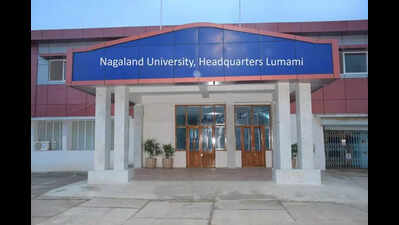- News
- City News
- guwahati News
- NU researchers create flexible learning system for personalized education
Trending
NU researchers create flexible learning system for personalized education
Guwahati: Nagaland University (NU) researchers have devised a novel framework for personalised learning for students. Proposing a ‘Flexible Learning System' (FLS), engineered to create individualised learning styles and content based on each student's context, the research team facilitated a one-to-one learning experience.
This innovative system, proposed for higher education institutions, has been created to provide flexibility for learning subjects, while delivering content to achieve one-to-one learning. They have built a framework to integrate ‘Multi-Access Edge Computing' (MEC) to support real-time adaptive learning in Intelligent Tutoring Systems (ITS), which are computer-based educational systems, utilising AI to provide personalised, adaptive instruction.
"This system, proposed for higher education institutions, will assist learners to pass courses with easy, moderate or advanced content. It will also guide learners who are not performing adequately. Multi-access Edge Computing (MEC) is an extension of cloud computing technology providing an application deployment platform proximate to end users," a university official said.
During field trials, at the School of Engineering & Technology, NU, the researchers claimed that FLS demonstrated a remarkable reduction in task processing time by 94%.The researchers suggested that this framework should undergo testing after successful development and preliminary output can be relied on before classroom implementation.
NU vice-chancellor, Prof. Jagadish K Patnaik, said, "In the future, the model will be Internet of Things (IoT) enabled to generate deeper insights into the learner's learning needs. Immersive learning will be enabled by integrating augmented reality and virtual reality. The system will be enhanced for ultra-low power consumption. Accessible in a wide range of services to address education services for all."
End of Article
FOLLOW US ON SOCIAL MEDIA











